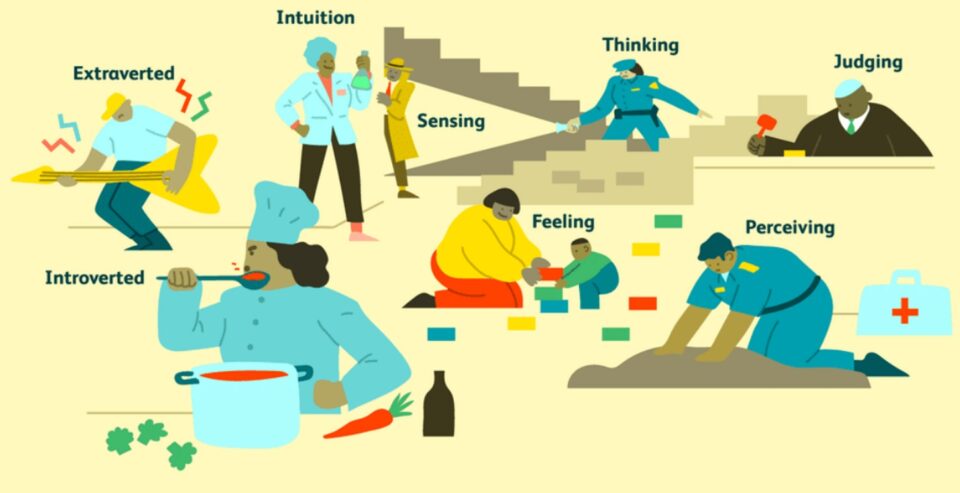A Feather to Place

“A Feather to Place”
Rev. Dr. Tony Larsen
Nov. 1, 2020
The Day of the Dead is a time to remember loved ones who have died--not just because we may miss them, but because we may be grateful for things they said or did (and gratitude is a good quality to nourish in our lives); but also because there may be lessons we can learn from their lives (and not just the positive ones--sometimes we learn what not to do from those who have gone before); and, just as important, perhaps, we remember those who have died because they remind us that we too will die, and reflecting on the lives of people who went before us may help us figure out what to do with the time we have left.
So, we celebrate the Day of the Dead and we remember because
1) we miss,
2) we give thanks,
3) we learn, and
4) we confront our own mortality.
It's this last one-- confronting our own mortality, figuring out what to do with the time we have left-- that I want to concentrate on today.
My sermon, titled "A Feather to Place," is from a saying I particularly like: "Each of us has a feather to place on the scales of history." At first glance, that sounds a little paltry or tepid. A feather, after all, does not seem likely to tip the scales much one way or the other. But that's one of the reasons I like this saying. It reminds me that each of us is just one tiny speck of the big picture-- we're fairly insignificant in the big scheme of things. And it's good for me to remember that sometimes, especially when I get grandiose ideas about how important I am, or what the world owes me. We each have only a feather to place on the scales of history.
And yet, when you think about it, one feather-- especially joined with another feather or two--can tip the balance in an evenly weighted scale. There was an old riddle we used to say when we were kids: "What weighs more--a pound of lead or a pound of feathers?" And usually the other kid would say, "Well, the lead, of course" (because lead is heavier by volume than feathers are). But a pound of feathers weighs just as much as a pound of lead--they're both one pound.
And I mention this because a feather to place on the scales of history is pretty significant when you stop to think about it. One feather, strategically placed, can tip the balance of knowledge over ignorance, good over evil, gratitude over cynicism, and sometimes even life over death. (I do know that sometimes a relatively small number of votes--cast for one candidate, or another, or not cast at all--can make a vast difference in the life of a community or a nation.)
So I have a few stories to tell you this morning, of people who did what seemed at the time to be insignificant things-- small acts, inconsequential matters, barely the weight of a feather-- yet they had meaning to one person at least, and sometimes to a lot more than one.
The first is from one of my favorite authors, lecturers and workshop leaders: Doug Adams. (Not the Doug Adams who wrote A Hitchhiker's Guide to the Galaxy--but a therapist who works a lot with dying patients.) Here's the story he told:
"Albert was in his mid-nineties. He was terminally ill and seemed unresponsive. He lived in his home with his wife. She was in her mid-nineties also. Although she was not terminally ill, she was about as responsive as Albert was.
"My first two visits with the couple consisted of me sitting in one chair, she in another, and Albert lying in the bed.
"My third visit I noticed something in Albert's room that could have been there the first two visits, but I might not have been very attentive those first two visits. It was a book, a book on Albert's bedside table. That alone should have clued me into something: What was a book doing on the bedside table of someone who is supposedly unresponsive? Also, it was an unusual book to have on the bedside table of someone who was dying. The book had a title something like 'The History Of Black Baseball.' I went over to the bedside table and picked up the book. Albert, whose eyes had not opened, must have somehow realized that I had that book in my hands because I heard the first sound from him. It was an 'Ummph.'
"I turned to Albert and saw his hand move. I had never seen his hand move. He extended three fingers, then two. He did it again: three fingers then two. Again. Finally I realized that I needed to turn to page 32 in that book. On page 32 was an old photograph of a man named 'Albert,' nicknamed 'Speedball.'
"I turned to Albert. 'Speedball?' (I asked). I got an 'Ummph' with a smile. 'Did you know Satchell Paige?' Albert's eyes opened. ....
"It's amazing (Doug Adams concludes) how showing interest in someone's life work--even if it's an accidental showing of interest--can literally bring people out, even out of 'unresponsiveness.'"
A small act-- but important just the same.
This next one is an old one--you can tell because it was in a letter to Ann Landers (an old advice columnist), and it happened when long-distance calls always had human operators. Here's how it goes:
"Dear Ann Landers, Last week I called my girl(friend) from an airport in Kansas. After I hung up and started to walk away, the phone rang. I thought I owed more money. The operator said, 'Thought you'd like to know, after you ran off your girl(friend) said, "Please ask me to marry you again."' I called her back. She said yes. Telephone operators can be awfully nice!"
A tiny thing-- but momentous for this person. (And maybe for a whole family of people!)
This next story concerns the baseball great Harmon Killebrew, who made the Hall of Fame in 1984. He gave a little speech at his induction and talked a little about his childhood. And he mentioned an incident he remembered that was to have a lasting influence on his life. He said that when he was a kid, his father used to play baseball with him and his brothers, outside their farm, sometimes for hours at a time. And one day his mother came out and complained that, with all their base running and chasing grounders, they were tearing up the lawn. And his father just turned to his mother and said, "Mary, we're not raising grass here; we're raising boys."
And Killebrew said: "Just that insight, just that homely little insight, made me think that when I grew up I would not just have a house that nobody could touch; and furniture that nobody could sit on; and clothes that had to be perfect; and things that would be great artifacts for my 'castle.' But I would have a home for my children, and things would never get in the way of people."
Amazing how one off-the-cuff comment could make a difference like that, and help someone see things in a whole new way.
My last story is from a man named Robert Peterson, who describes an incident that changed his life 30 years ago. Again, it was a small thing-- but momentous to him.
The Sandpiper," by Robert Peterson
She was six years old when I first met her on the beach near where I live. I drive to this beach, a distance of three or four miles, whenever the world begins to close in on me. She was building a sand castle or something and looked up, her eyes as blue as the sea.
"Hello,” she said. I answered with a nod, not really in the mood to bother with a small child.
“I'm building,” she said.
“I see that. What is it?” I asked, not really caring.
“Oh, I don't know, I just like the feel of sand.”
That sounds good, I thought, and slipped off my shoes. A sandpiper glided by.
“That's a joy,” the child said.
“It's a what?”
"It's a joy. My mama says sandpipers come to bring us joy.”
The bird went gliding down the beach. Good-bye joy, I muttered to myself, hello pain, and turned to walk on. I was depressed, my life seemed completely out of balance.
"What's your name?” She wouldn't give up.
“Robert,” I answered. “I'm Robert Peterson.”
“Mine's Wendy... I'm six.”
“Hi, Wendy.”
She giggled. “You're funny,” she said.
In spite of the gloom, I laughed too and walked on. Her musical giggle followed me.
“Come again, Mr. P,” she called. “We'll have another happy day.”
After a few days of a group of unruly Boy Scouts, PTA meetings, and an ailing mother, the sun was shining one morning as I took my hands out of the dishwater. I need a sandpiper, I said to myself, gathering up my coat.
The ever-changing balm of the seashore awaited me. The breeze was chilly, but I strode along, trying to recapture the serenity I needed.
"Hello, Mr. P,” she said. “Do you want to play?”
“What did you have in mind?” I asked, with a twinge of annoyance.
“I don't know--you say.”
“How about charades?” I asked sarcastically.
The tinkling laughter burst forth again. “I don't know what that is.”
“Then let's just walk.”
Looking at her, I noticed the delicate fairness of her face.
“Where do you live?” I asked.
“Over there.” She pointed toward a row of summer cottages. Strange, I thought, in winter.
“Where do you go to school?”
“I don't go to school. Mommy says we're on vacation.”
She chattered little girl talk as we strolled up the beach, but my mind was on other things. When I left for home, Wendy said it had been a happy day. Feeling surprisingly better, I smiled at her and agreed.
Three weeks later, I rushed to my beach in a state of near panic. I was in no mood to even greet Wendy. I thought I saw her mother on the porch and felt like demanding she keep her child at home.
“Look, if you don't mind,” I said crossly when Wendy caught up with me, “I'd rather be alone today.”
She seemed unusually pale and out of breath.
“Why?” she asked.
I turned to her and shouted, “Because my mother died!” and thought, My God, why was I saying this to a little child?
“Oh,” she said quietly, “then this is a bad day.”
“Yes,” I said, “and yesterday and the day before and--oh, go away.”
“Did it hurt?” she inquired.
“Did what hurt?” I was exasperated with her, with myself.
“When she died?”
“Of course it hurt!” I snapped, misunderstanding, wrapped up in myself. I strode off.
A month or so after that, when I next went to the beach, she wasn't there. Feeling guilty, ashamed and admitting to myself I missed her, I went up to the cottage after my walk and knocked at the door. A drawn looking young woman with honey-colored hair opened the door.
“Hello,” I said. “I'm Robert Peterson. I missed your little girl today and wondered where she was.”
“Oh yes, Mr. Peterson, please come in. Wendy spoke of you so much. I'm afraid I allowed her to bother you. If she was a nuisance, please, accept my apologies.”
“Not at all-- she's a delightful child,” I said, suddenly realizing that I meant what I had just said.
“Wendy died last week, Mr. Peterson. She had leukemia. Maybe she didn't tell you.”
Struck dumb, I groped for a chair. I had to catch my breath.
“She loved this beach so when she asked to come, we couldn't say no. She seemed so much better here and had a lot of what she called happy days. But the last few weeks, she declined rapidly…” Her voice faltered, “She left something for you... if only I can find it. Could you wait a moment while I look?”
I nodded stupidly, my mind racing for something to say to this lovely young woman. She handed me a smeared envelope with "Mr. P" printed in bold childish letters. Inside was a drawing in bright crayon hues--a yellow beach, a blue sea, and a brown bird. Underneath was carefully printed: A SANDPIPER TO BRING YOU JOY
Tears welled up in my eyes and a heart that had almost forgotten to love opened wide. I took Wendy's mother in my arms.
“I'm so sorry, I'm so sorry, I'm so sorry,” I muttered over and over, and we wept together. The precious little picture is framed now and hangs in my study. Six words--one for each year of her life--that speak to me of harmony, courage, and undemanding love.
We never know how much a particular thing that someone says or does can touch a life. And we don't have to know. (In fact, it's probably better that we don't always know.) But each step we take, each word we say, each gift we give, each action we perform has at least the potential of tipping the scales for someone. We each have a feather to place--whether of a swan, an eagle, or a sandpiper-- it doesn't really matter. When placed with love, it is from the wings of an angel.



